Anna Karenina
 for some sexuality and violence.
for some sexuality and violence.
Reviewed by: Charity Bishop
CONTRIBUTOR
| Moral Rating: | Very Offensive |
| Moviemaking Quality: |
|
| Primary Audience: | Adults Teens |
| Genre: | Romance Drama Adaptation |
| Length: | 2 hr. 10 min. |
| Year of Release: | 2012 |
| USA Release: |
November 16, 2012 (limited) November 21, 2012 (limited—16 theaters) December 7, 2012 (wide—384 theaters) DVD: February 19, 2013 |


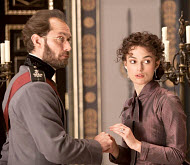
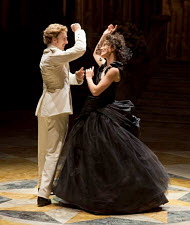


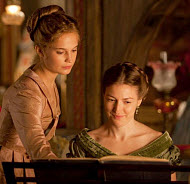

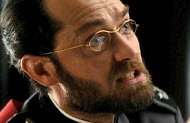

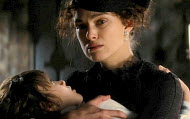
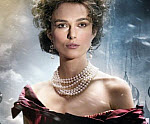
no one may build their happiness on another’s pain
the self-deception of believing that another person is the key to your happiness
TRUE LOVE—What is true love and how do you know when you have found it? Answer
carnal desire and passion
fidelity and purity vs. adultery and fornication
Devotion to living righteously is the only justifiable reason for living.
Sin has a price.
author: Leo Tolstoy
woman stuck in a loveless marriage
VENGEFUL ANGER — “Vengeance is mine, I will repay” —Romans 12:19; Deuteronomy 32:35.
bond between a mother and her children
basing one’s happiness on success in high society
believing in “evil omens”
becoming the subject of gossip
being snubbed by former friends
hypocrisy
living a life of lies and falseness
bitterness
boredom
drug abuse/addiction—morphine
making decisions based on the visions of a “clairvoyant”
SUICIDE—What does the Bible say? Answer
If a Christian commits suicide, will they go to Heaven? Answer
Where did CANCER come from? Answer
How did bad things come about? Answer
Why does God allow innocent people to suffer? Answer
What about the issue of suffering? Doesn’t this prove that there is no God and that we are on our own? Answer
Does God feel our pain? Answer
What kind of world would you create? Answer
death
| Featuring |
|---|
|
Keira Knightley … Anna Karenina Jude Law … Alexei Karenin Alicia Vikander … Kitty Aaron Taylor-Johnson … Count Vronsky Matthew Macfadyen … Oblonsky Kelly Macdonald … Dolly Michelle Dockery … Princess Myagkaya Emily Watson … Countess Lydia Olivia Williams … Countess Vronskaya Shirley Henderson … Mme Kartasov See all » |
| Director |
| Joe Wright—“Atonement,” “Pride and Prejudice” |
| Producer |
|
Working Title Films Tim Bevan … producer See all » |
| Distributor |
pure love vs. sensual lust
Though his own life story was fraught with controversy, Leo Tolstoy also wrote one of the most interesting contrasts between pure love and sensual lust, in the form of Anna Karenina. This most recent adaptation succeeds on a purely visual level, but not entirely on an emotional or spiritual one.
When it is discovered by her brother’s wife that he has cheated on her with a governess, Anna Karenina (Keira Knightley) is dispatched to their home to convince her not to divorce her husband. Her success in this is undermined when she meets Count Vronsky (Aaron Taylor-Johnson) at the station. He is immediately infatuated with her, and she with him, but Anna’s attempts to resist become more difficult once he follows her back to St. Petersburg, much to the distress of her respectable husband (Jude Law).
Count Vronsky is meant to be pursuing a marriage with Kitty (Alicia Vikander). In the hope of becoming his wife, she turns down a proposal of marriage from Levin (Domhnall Gleeson). But where one love story begins, another threatens to descend into destruction.
On several occasions, morality is addressed through its characters. Karenina quotes Scripture on the subject of “coveting your neighbor’s wife,” and Levin condemns adulterous love as being impure and ultimately unsatisfying (as is proven true in the extra-marital affair’s outcome). But where the themes of the book are much more evident, particularly when it comes to the role God plays in both Karenina and Levin’s life, here they are diminished or nonexistent, leaving viewers to read between the lines. The book’s purpose is to show us wild, passionate, sexual desire that turns itself inside out and descends into jealousy and contempt, contrasting it with a pure and innocent love that begins with an act of total forgiveness. Sadly, those themes are so downplayed in this version that Levin’s shift from an atheist to a man aware of the existence and goodness of God is also absent. What we are left with is an incomplete story that does hit some of the highlights of the moral messages of the book, but not the most important ones.
Purely from an artistic perspective, this is a masterful piece of work that approaches the material in a wholly unique way—by setting a stage. It works better than anyone anticipated, blending reality and metaphor with seamless and clever transitions. Some of the most powerful scenes are reminiscent of the director’s earlier work—much as he did with Elizabeth and Darcy in “Pride & Prejudice,” he isolates Anna and Vronsky on the dance floor, to draw us into their increasing passion for one another. The costuming is also scrumptious and everyone does a phenomenal job of acting, particularly Ms. Knightley in the lead. Whether or not it is worthy of an Oscar®, she reaches deep into the soul of the audience and, perhaps as a first for the character of Anna Karenina, makes us feel deeply sorry for her.
Unfortunately, some of the good themes of the film (such as forgiveness and the importance of marital fidelity) are undermined with sensuality, for three times we see active intimacy between couples—twice with Vronsky and Anna (there is no nudity, but lots of passionate kissing and faces in expressions of ecstasy) and once, as a reflection on a train window (this one contains movement). Side nudity is also seen as a couple sleeps entangled in one another’s arms. Many references are made to adulterous affairs and unchecked “passion.” There is one mild profanity and some violence (a pregnant woman is pushed to the ground, two people are hit by trains—one of them with a grisly aftermath).
Tolstoy powerfully shows how “love,” if unsupported with trust and fidelity, can be undermined by jealousy, self-loathing, and guilt. One of the most powerful moments is when Anna berates her husband for his forgiveness, for now she must “live with it.” Some characters condemn infidelity, others tolerate it, and a few embrace and/or dismiss its deeply sinful nature. It’s a shame that for the sake of time constraints, some important events were cut from the film, because it makes it emptier than it should be, particularly for a Christian viewer. Yet, in spite of its flaws, it still contains a powerful and sobering message of the perils of pursuing sin instead of righteousness.
Violence: Moderate / Profanity: Minor / Sex/Nudity: Heavy
 Learn how to make your love the best it can be. Discover biblical answers to questions about sex, marriage, sexual addictions, and more.
Learn how to make your love the best it can be. Discover biblical answers to questions about sex, marriage, sexual addictions, and more.
See list of Relevant Issues—questions-and-answers.


I was wrong. I read the in-depth content description at Plugged-In Online, and I was saddened to uncover that the movie contains not one, not two, but FOUR sex scenes with explicit sexual movement and some male rear nudity. SERIOUSLY?!!! Does a movie based on a novel about adultery have to depict the act in graphic detail? The closest it got ere this film to explicit sex was a brief scene in the 1997 version where Count Vronsky (Sean Bean) kisses Anna (Sophie Marceau) suggestively, the camera closes on Anna’s face and then the camera cuts to a scene of them just finished consummating their lust, with no nudity; Anna is covered with a sheet, as is Count Vronsky.
So, I painfully made the decision to not view this version. Due to the sex scenes, I do NOT recommend this version. View the two versions with Greta Garbo, the one with Vivien Leigh, the television miniseries made in the mid-1970s or the lavish film made in 1997 starring Sophie Marceau, Sean Bean, James Fox and Alfred Molina. All of these productions are well-made and don’t have explicit sex scenes, though there is fleeting nudity of a girl at a party in the film version from 1997.
The Bible saith, “Flee fornication. Every sin that a man doeth is without the body: but he that committeth fornication sinneth against his own body. Know ye not that your body is a temple of the Holy Ghost, which is in you, whom ye have of God? And ye are not your own. For ye are bought for a price: therefore glorify God in your body, and in your spirit, which are God’s.”-The First Epistle Of The Apostle Paul To The Corinthians 6:18-20
PLEASE share your observations and insights to be posted here.

In addition, to this there was an element of grace portrayed in the film that is seldom seen. While I agree that the book offers much richer, and specific Christ-centeredness, the film still contains a powerful portrayal of the cost of giving in to sin.
My Ratings: Moral rating: Average / Moviemaking quality: 4½